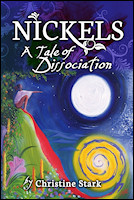Sexual Politics at Penn State—An Inside Look

The author, professor emerita of Penn State University, describes the culture that produced the recent scandal—and suggests a path to a needed focus on the victims of such abuse.
I was once summoned to my dean's office to justify comments I made in a radio interview upon publication of my book Prostitution of Sexuality (1995). I had said that one in ten women in the United States is raped, and that figure—which has since doubled—was an undercount because only 10 percent of rapes are reported. The interview angered a Penn State alumni, who demanded that the university president take action against me. In all seriousness, the president forwarded the complaint to my dean, who expected me to explain myself. My answer didn't satisfy apparently so I was called in once again. This time I told the administration that the call was likely coming from a sexual predator, and I walked out of the dean's office.
Penn State caters to an alumni whose donations are a major source of income, and whose presence is a major segment of the crowd that fills the 100,000-plus capacity football stadium every home game. In such an atmosphere, coach Joe Paterno, as the lead draw for alumni contributions, was beyond question. So, for a time, was Rene Portland, the Penn State women’s basketball coach whose explicit "No Lesbians" team policy and attendant sexual harassment wreaked havoc on many young women's lives and college careers. When Penn State, under pressure from feminist and lesbian/gay rights groups, mandated sexual harassment training for all coaches in the 1990s, Paterno and Portland, with the arrogance of the untouchable, showed up for only the last 15 minutes of the program.
Despite a 1991 Penn State non-discrimination and harassment policy, Portland persisted with her harassment until 2006 when a student sued the university for being taken off the team and being threatened that her parents and community would be told she was a lesbian. Penn State's own investigation recognized that Portland had created a "hostile, intimidating and offensive" environment for lesbians. The suit, settled out of court, cost Portland her job. But in the world of Penn State athletics, hatred of lesbians combined with a football cult of male macho continued to validate a sexually hostile campus culture.
A beacon of hope for students devastated by that culture—Portland's victims, survivors of fraternity gang rape and date rape—existed in the Penn State Center for Women's Students, developed and directed for years by Sabrina Chapman and later by feminist therapist Peggy Lorah. Still, the coaches for the most part were untouched and uncaring until the arrest last month of assistant coach Jerry Sandusky on allegations of child sexual abuse, which finally brought down Paterno and University President Graham Spanier as well.
With all the media coverage of the scandal since mid November, the public remains distanced from the actual harm that the children victimized by Sandusky experienced and must live with. And the extent of the hostile sexual climate at Penn State has gone unreported. The language of media reports too often implied implicit consent by the children. As former sex crimes prosecutor Wendy Murphy points out:
While the word "rape" rarely appears, nearly every news source describes the crimes at issue using the following terms and phrases: "engaging in sexual activity"; "fondling"; "the boy performing oral sex"; "anal sex/intercourse" and "sexual assault."
To break through the mainstream media's problematic language and get a sense of the depth of harm the victim experiences in sexual abuse, I suggest reading Christine Stark’s new novel, Nickels: A Tale of Dissociation. The author, also a poet and visual artist, manages to bring the experience of sexual abuse into a present moment reality through the first-person narrative of Little Miss So and So, from age five to twenty-five, from surviving her father's sexual abuse at various ages to a world of support created by feminists and lesbians.
Since feminism broke open this best kept secret decades ago, we have been heartbroken and angered by the testimony and memoirs of women who as children fell victim to a father, stepfather, grandfather or uncle. The effects could be so severe that memory might not contain it—until some experience in adulthood provides the trigger and floods of anguish take over. So the story, Nickels, is not new. But Christine Stark has chosen a style and genre—a stream of consciousness novel—that keeps Little Miss So and So in the present tense.
Her reality is not segmented into sentences or paragraphs; its monologue is born in experience and expressed in a voice authentic to her heroine at various ages. Nothing could bring her reality—the abuse, the doctors, the courts, her escape, breakdown and recovery—closer to our consciousness. The author knows something about survival, about putting one foot in front of the other to move through a situation we are never meant to experience. Little Miss So and So's present moments yield immediately to new present moments that the reader cannot escape; yet the pace is fast enough to relieve us of the need to "get through it."
This book and its empathetic engagement will be a treasure to anyone working with victims of sexual abuse. And if we want to truly understand the failure in the Penn State scandal, we will look closely to its victims.
More articles by Category: LGBTQIA, Sports, Violence against women
More articles by Tag: Rape, Sexual harassment



























